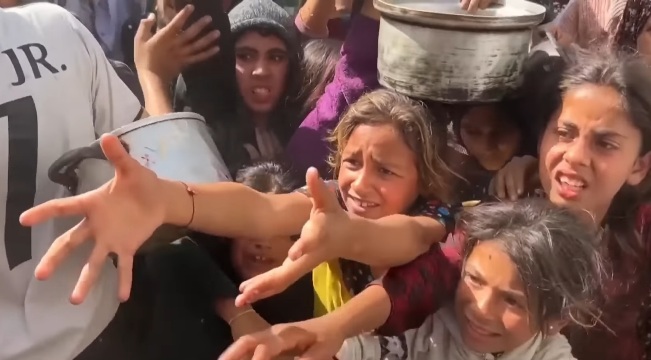As the ongoing military campaign in Gaza continues into its nineteenth month, more than 2 million residents remain trapped under what humanitarian observers are describing as an unprecedented humanitarian catastrophe. The crisis is marked by the combined effects of aerial bombardments, mass displacement, acute hunger, and the complete denial of access to medical care and humanitarian assistance.
The United Nations Relief and Works Agency for Palestine Refugees in the Near East (UNRWA) warned on Sunday that the continued Israeli blockade on humanitarian, medical, and commercial supplies entering Gaza, now in place for more than nine weeks, is contributing to “irreparable harm to countless Palestinian lives”. In a public statement on the platform X, the agency confirmed that thousands of aid trucks are ready for immediate entry, and relief teams inside the Gaza Strip are prepared to scale up operations. However, the full closure of border crossings since 2 March has prevented the population from accessing essential supplies, amid widespread destruction and critical shortages of food and medicine.
UNRWA’s warning coincides with rapidly deteriorating health and humanitarian conditions. The Ministry of Health in Gaza has reported the deaths of 57 children due to acute malnutrition and lack of access to therapeutic milk, particularly affecting children with disabilities. The use of starvation as a method of warfare constitutes a serious violation of international humanitarian law.
Since early March, and following the collapse of the initial phase of a ceasefire arrangement originally launched in January, all forms of aid have been prevented from entering Gaza, significantly exacerbating the already dire humanitarian crisis.
Gaza’s population of 2.4 million is now living under extreme duress. The World Bank has described the population as “almost entirely impoverished” as a result of the protracted siege, destruction of infrastructure, and the near-total collapse of economic activity and public services.
The military campaign, which has received political and military backing from the United States, has resulted in over 172,000 casualties since October 2023, the majority of whom are women and children. Thousands remain unaccounted for, presumed buried beneath rubble or otherwise missing. Despite repeated international appeals, Israeli forces have continued the offensive and have declined to implement orders issued by the International Court of Justice.
The ongoing denial of humanitarian access and the cumulative impact of killings, starvation, and deprivation of health care have prompted renewed concerns from rights organisations that the situation in Gaza may meet the legal definition of genocide, as articulated in the 1948 Convention. The current trajectory has raised serious questions about the credibility of international legal mechanisms when confronted with prolonged and large-scale violations committed in full view of the global community.




























